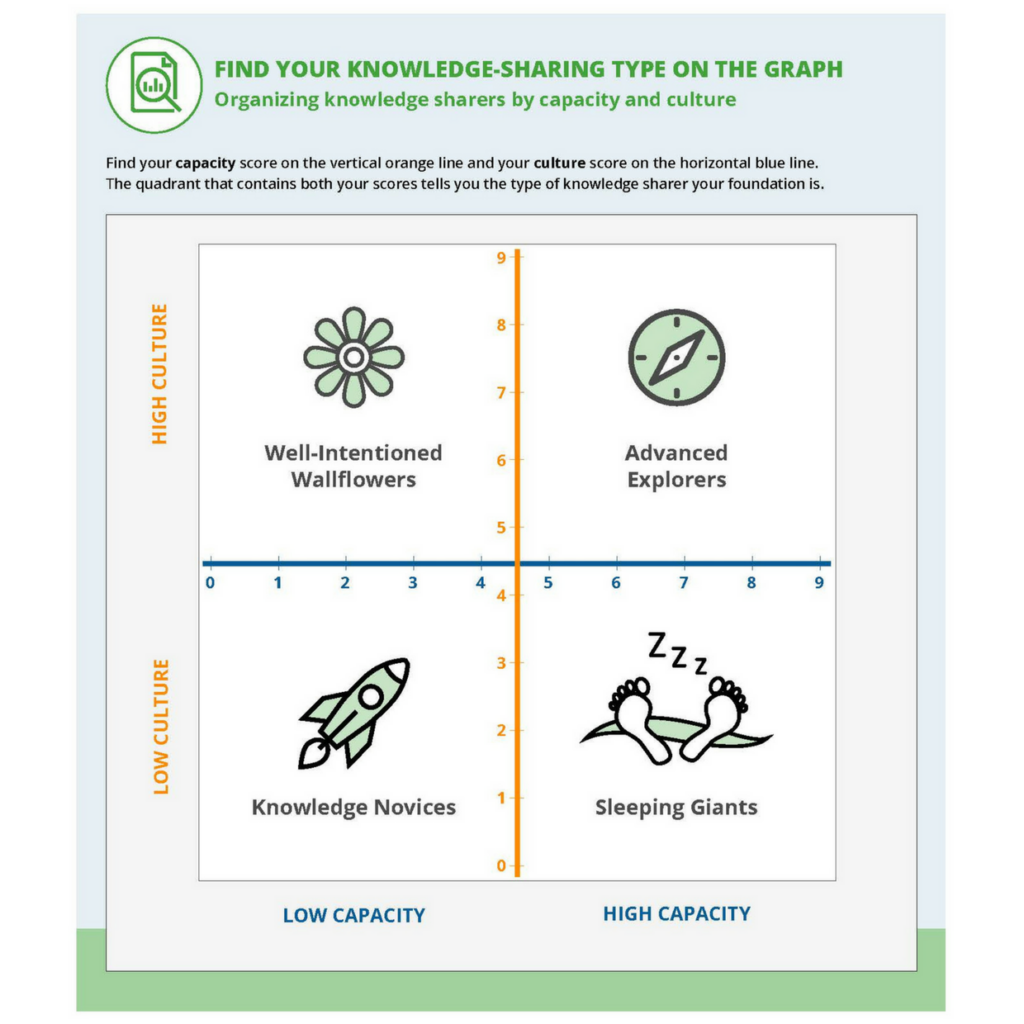Knowledge has the power to spark change, but only if it is shared. Many grantmakers instinctively like the idea of sharing the knowledge they generate with others. But in the face of competing priorities, a stronger case must be made for foundations to devote time and resources to sharing knowledge. The truth is that when foundations share knowledge generated through evaluation, strategy development and thought leadership, they benefit not only others but also themselves. Sharing knowledge can deepen internal reflection and learning, lead to new connections and ideas, and promote institutional credibility and influence.
Foundations can strengthen their knowledge sharing practices by enhancing organizational capacity and culture, and by understanding how to overcome common hurdles to sharing knowledge. The forthcoming GrantCraft guide Open for Good: Knowledge Sharing to Strengthen Grantmaking provides tips and resources for how foundations can do just that. My organization, Engage R+D, partnered with the Foundation Center to produce this guide as part of #OpenForGood, a call to action for foundations to openly share their knowledge.

To produce the guide, we conducted interviews with staff of foundations varying by origin, content focus, size, and geography. Participants shared their insights about the benefits of sharing knowledge not only for others, but also for their own organizations. They also described strategies they use for sharing knowledge, which we then converted into concrete and actionable tips for grantmakers. Some of the tips and resources available in the guide include:
- A quiz to determine what type of knowledge sharer you are. Based upon responses to questions about your organization’s capacity and culture, you can determine where you fall within a quadrant of knowledge sharing (see visual). The guide offers tips for how to integrate knowledge-sharing into your practice in ways that would be a good fit for you and your organization.
- Nuts and bolts guidance on how to go about sharing knowledge. To take the mystery out of the knowledge sharing process, the guide breaks down the different elements that are needed to actually put knowledge sharing into practice. It provides answers to common questions grantmakers have on this topic, such as: What kinds of knowledge should I be sharing exactly? Where can I disseminate this knowledge? Who at my foundation should be responsible for doing the sharing?
- Ideas on how to evolve your foundation’s knowledge-sharing practice. Even foundation staff engaged in sophisticated knowledge-sharing practices noted the importance of evolving their practice to meet the demands of a rapidly changing external context. The guide includes tips on how foundations can adapt their practice in this way. For example, it offers guidance on how to optimize the use of technology for knowledge sharing, while still finding ways to engage audiences with less technological capacity.
The tips and resources in the guide are interspersed with quotes, audio clips, and case examples from the foundation staff members we interviewed. These interviews provide voices from the field sharing tangible examples of how to put the strategies offered in the guide into practice.
Want to know how your foundation measures up when it comes to knowledge-sharing? We are pleased to provide GEO members with an advance copy of Chapter 2 from the forthcoming Guide which includes the quiz referenced above. Want to learn more? Sign up for the Foundation Center’s GrantCraft newsletter and receive a copy of the Guide upon its release. For those who are attending the GEO conference this month, be on the lookout for the #OpenForGood pop-up quiz station where you can learn more about what kind of knowledge sharer you are.
Clare Nolan, MPP, Co-Founder of Engage R+D, is a nationally recognized evaluation and strategy consultant for the foundation, nonprofit and public sectors. She has particular expertise in helping foundations to document and learn from their investments in systems and policy change, networks, scaling, and innovation. You can connect with her on Twitter or LinkedIn.

